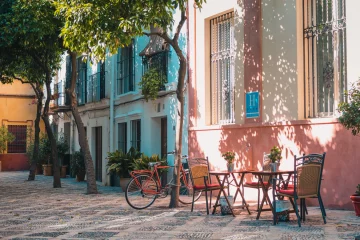Table of Contents
Cluny Abbey is a Benedictine monastery
The Cluny Abbey is a Benedictine monastery that was founded in a forest reserve for hunting, one of the most typical French sports in the Middle Ages. This area became later the eponymous French municipality on the 2th September of 910 by William I, Duke of Aquitaine, and Count of Auvergne, who installed The Cluny Abbey under the authority of The Pope Sergius III.
The Abbey of Cluny is located in the town of Cluny in the department of Saone et Loire in Burgundy, in central-eastern France. It was built in the Romanesque style, with three churches built in succession from the 10th to the early 12th centuries. Thanks to this Abbey, the town of Cluny grew up, and became established in European society.
The Rules of Cluny’s monastery
The Cluny Abbey was notable for its stricter adherence to the Rule of St. Benedict soon became an example for religious life. The Rules of Cluny’s monastery were based in three pillars:
- Execution of the liturgy as its main form of work
- Organizational structure
- Prohibition on holding land by feudal service
This Abbey was where the Benedictine Order was formed, whereby Cluny became acknowledged as the leader of western monasticism and part of French culture.
The decline of Cluny’s Abbey
The decline of Cluny’s Abbey started when Cluny had serious financial problems, caused mainly by the construction of the third abbey, because of a bad management, the conflicts with the priories multiplied and the authority of the pope became heavier and finally during the French Revolution, the abbey was sacked and destroyed in 1790. Today, only a small part of the architecture remains.
The Hotel de Cluny, dating around 1334, was the townhouse of the abbots of Cluny in Paris. It became a public museum in 1833. Apart from the name, it no longer possesses anything originally connected with Cluny.



0 comentarios